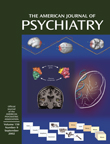Prolactin Elevation With Quetiapine
To the Editor: A recently published report by Peter Turrone, B.A. (Sp.H.), M.Sc., et al. (1) presented data indicating that the atypical antipsychotics risperidone, olanzapine, and clozapine produced serum prolactin elevations that were most prominent 1–5 hours after medication administration. With olanzapine and clozapine, serum prolactin levels had returned to baseline values by 12–24 hours. These findings have significant implications for understanding the binding properties of these compounds with dopamine D2 receptors (2).
We completed a similar study to determine the effects of oral administration of quetiapine, another atypical antipsychotic, on serum prolactin levels in young first-episode patients with a schizophrenia spectrum disorder.
Four patients (two men and two women, mean age=21 years) participated. Each patient gave written informed consent. They were clinically stable with quetiapine monotherapy. All of the patients had been treated with quetiapine for more than 6 months. On the day of testing, they were instructed to withhold their morning dose of quetiapine and to come for testing at noon. Blood samples were drawn before the patients took their full daily dose (two patients were taking 700 mg/day, and two were taking 800 mg/day) and every 30 minutes thereafter for 3 hours.
Baseline serum prolactin levels were not abnormal (<10 ng/ml). However, all four patients had significant serum prolactin elevations within 90 minutes of drug administration. Two patients had peak prolactin levels (115 ng/ml and 120 ng/ml) occurring 60 minutes after they took the dose, while for the other two participants, peak levels (80 ng/ml and 84 ng/ml) occurred 90 minutes later. In all patients, serum prolactin levels declined from the peak value over the remaining observation times. Three hours after administration, serum prolactin levels (30 ng/ml to 60 ng/ml) were still above baseline levels in all four patients.
The magnitude of the prolactin elevations was considerably greater than what has been previously reported for risperidone, olanzapine, and clozapine (1). We administered the full daily dose of quetiapine to patients who had routinely received the drug in divided doses. Hence, the predicted serum prolactin elevations under the divided-dose regime would have been considerably lower than reported here and likely more comparable to the data for other atypical antidepressants.
These results indicate that oral administration of quetiapine was associated with a marked but transient increase in serum prolactin levels. The results support the view that a relatively rapid dissociation from dopamine receptors is central to the mechanism of action of atypical antipsychotics (2).
1. Turrone P, Kapur S, Seeman MV, Flint AJ: Elevation of prolactin levels by atypical antipsychotics. Am J Psychiatry 2002; 159:133-135Link, Google Scholar
2. Seeman P: Atypical antipsychotics: mechanisms of action. Can J Psychiatry 2002; 47:27-38Medline, Google Scholar



